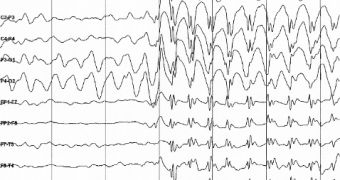A new medical breakthrough, made by researchers at the University of Verona, in Italy, revealed the mechanisms that trigger epileptic seizures in mice. Miscoordination between the immune cells and the blood vessels in the brain can lead to the release of compounds that cause the inflammation of the vessels, thus triggering the convulsive seizures. The Italian team also learned that the condition can be treated with modern anti-body drugs, which proved very efficient in animal tests.
During a seizure, the brain releases a chemical that forces leukocytes – the white cells in our immune systems – to bind with the walls of the blood vessels, triggering an inflammatory reaction. Usually, the white cells are very helpful to humans, keeping off bacteria, viruses and other pathogens, or killing them as soon as they invade our systems. Apparently, they can also become very harmful during epilepsy seizures.
This debilitating mental disease actually consists of many syndromes, with widely different symptoms, but which all cause abnormal activity in the brain. The frequencies at which brain waves operate temporarily spike, rendering the cortex unable of processing the information it receives. "This mechanism was not previously suspected in epilepsy," said the lead researcher of the current study, Gabriela Constantin. The paper was recently published in the journal Nature Medicine.
In mice trials, after the animals received shots of monoclonal antibodies, they exhibited a significant reduction in epilepsy seizures, sometimes even as high as 100 percent, which can only mean that the therapy works. However, the team must now focus its efforts on studying the long-term effects of the drugs they used. Human clinical trials are scheduled to begin as soon as the drug is cleared for this use.
"We predict other inflammatory drugs can work and be discovered for use in humans. We have preliminary data on other inflammatory mechanism," added Constantin, during a phone interview with Reuters.

 14 DAY TRIAL //
14 DAY TRIAL //